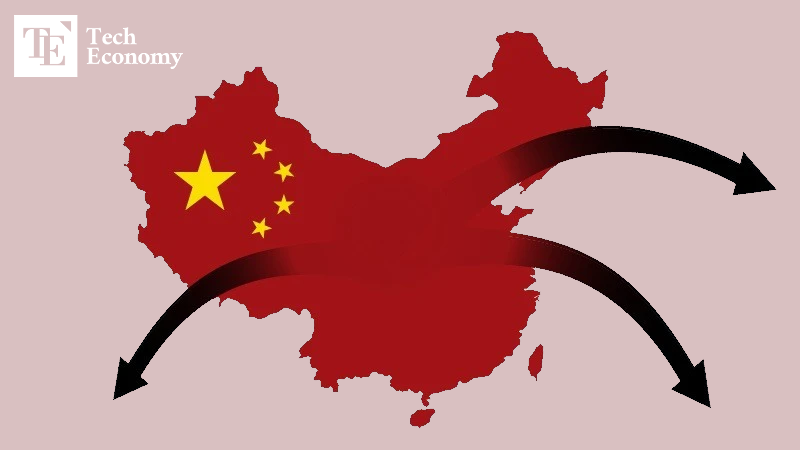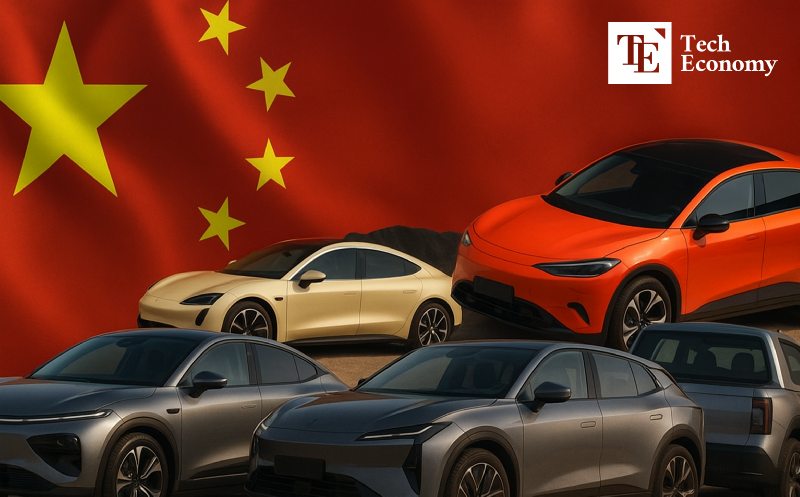Chinese EV Industry Faces Overcapacity Crisis, Seeks Relief Through Global Expansion
Input
Modified
Domestic Weakness and Overheated Competition Driving Market Limits Expansion of Overseas Investment Centered on Batteries and Assembly Plants Factory Expansion in Europe and Southeast Asia by BYD and Chery Automobile

China’s electric vehicle (EV) sector accelerated its global expansion last year, with overseas investments surpassing domestic investments for the first time. Confronted with prolonged weakness in domestic demand and intensifying price wars, manufacturers are now turning abroad to secure growth opportunities. Yet analysts caution that, with entrenched challenges of overcapacity and thin margins, the industry is heading into a consolidation phase in which only a handful of players are likely to survive.
Overseas Investment Outpaces Domestic Spending for the First Time
According to a report released on the 20th (local time) by U.S. consultancy Rhodium Group, Chinese EV makers’ overseas investments totaled roughly $16 billion in 2024, exceeding the $15 billion invested domestically by around $1 billion. “For the first time in history, overseas investment by China’s EV sector has outstripped domestic spending,” the report stated. “Until 2022, domestic investments had far outpaced offshore commitments, with nearly 80% of capital concentrated within China. The reversal marks a historic shift.”
Batteries remain the central focus. The report noted that 74% of new overseas investment and 69% of domestic investment last year flowed into battery manufacturing facilities—reflecting the capital-intensive nature of the sector. CATL, the world’s largest EV battery producer, declared in June that international expansion was its top priority, while Envision Group, Gotion High-Tech and other major suppliers are also building production bases abroad to serve clients such as Tesla and BMW.
High logistics costs and the need for localized supply chains are also accelerating investment in overseas assembly plants. Great Wall Motors announced on the 15th that it had begun operations at its first plant in São Paulo, Brazil. BYD, the world’s largest EV maker, has launched production at its Thailand and Brazil facilities, with additional plants planned in Turkey, Indonesia, Uzbekistan, Hungary, and Cambodia. Chery pledged a $1 billion EV plant in Turkey, while Ambition began manufacturing in France in June.

Price Wars Push Down EV Prices by 19%
The overseas push comes against the backdrop of deteriorating domestic sales. Data from the China Association of Automobile Manufacturers (CAAM) showed that EV sales in China dropped 7.8% month-on-month in July to 1.037 million units. By contrast, exports rose 10% to 225,000 units, more than doubling from a year earlier. Despite strong export growth, overall sales fell 5% from the previous month to 1.262 million units due to weakening domestic demand.
Analysts attribute the slump to sluggish consumption and cutthroat discounting driven by overcapacity. Since the property market downturn began in the second half of 2021, consumer demand has weakened significantly. In response, automakers engaged in aggressive price wars that triggered steep declines in EV, solar panel, and lithium carbonate prices. JP Morgan reported that average discounts offered by Chinese carmakers reached 16.8% in April, double the 8.3% recorded at the end of 2023. As a result, average retail prices for Chinese EVs have fallen by 19% over the past two years (2023–2025).
With domestic weakness deepening, the industry has entered a phase of consolidation. Last year, 16 EV firms went out of business, outpacing the 13 startups that entered the market. The government has moved to curb destructive competition: in May, the Ministry of Industry and Information Technology verbally intervened against EV price wars, and last month, the National Development and Reform Commission together with the State Administration for Market Regulation unveiled a draft amendment to the Pricing Law. The overhaul, the first in 27 years, aims to clamp down on predatory pricing practices.
Le Monde: Chinese EV Industry Entering Restructuring Phase
Despite the overseas pivot, industry observers doubt Chinese manufacturers can overcome structural constraints abroad without resolving their fundamental problems of overproduction and weak profitability. French daily Le Monde reported that “China’s EV industry has reached the limits of overcapacity,” warning that “with a saturated domestic market undergoing sweeping restructuring, automakers are seeing revenues decline.” It added: “Firms are relying on exports to weather the storm, but the shakeout will be difficult to avert.”
Concerns also extend to BYD, the sector’s flagship player. Le Monde noted that “BYD still holds the lead in EV sales, but its recent performance shows a clear decline. The company is aggressively expanding abroad to absorb excess capacity, but progress has been slower than expected.” The paper highlighted the twin headwinds of new EU tariffs on Chinese EVs and subsidy reductions in key markets. Indeed, EV sales in Europe amounted to just 37,000 units in the first quarter of this year.
The ultimate question is survival. Experts estimate that only five to ten Chinese new-energy vehicle companies will endure the looming consolidation. Even President Xi Jinping—who once championed EVs as a growth engine—recently invoked the term “involution” in a speech, cautioning against reckless local government subsidies. Wei Jianjun, chairman of Great Wall Motors, drew a starker warning: “BYD could become the Evergrande of the auto industry,” he said, recalling how excessive expansion and reckless financing triggered a systemic collapse in the property sector.





















